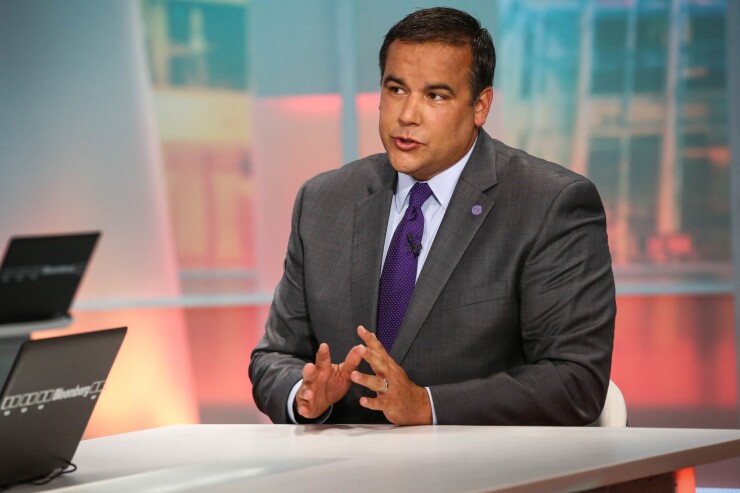Columbus, Ohio, voters approved a $1 billion bonding proposal that includes $50 million the city intends to use to tackle affordable housing — its the first ever such borrowing.
The city and Mid-Ohio Regional Planning Commission will hire a consultant to craft an investment and policy strategy for affordable housing.

The consultant is expected to summarize the scope of the housing shortage and existing resources, and develop recommendations to best leverage public dollars with private and philanthropic partners. Bids were due this week, the study starts July 1 and a report would be expected in spring.
“What this study is going to do tell us what is the best strategy to do affordable housing in our different neighborhoods,” Columbus Finance Director Joe Lombardi said.
Lombardi said the city put the bond proposal before voters Tuesday so that is ready to go once the study is completed.
“This is an issue that is bigger than just Columbus; it’s a regional issue and we hope our private sector and other municipalities help with the problem as well,” Lombardi said. “We know that this $50 million is not a silver bullet; it’s not a solution. The idea is that we can leverage that money to get additional development and be able to address the need more completely.”
At least 54,000 of Franklin County's lowest-income households spend more than half of their income on housing, according to the Affordable Housing Alliance of Central Ohio. And the region is expected to add 1 million people, a 50% increase, by 2050.
“Our concern of prioritizing this issue is so we can continue to grow as a community and it is also an equitable growth,” said Robin Davis, a spokeswomen for Columbus Mayor Andrew Ginther.
The city views the issue of affordable housing as a critical one going forward for its continued growth which bolsters its tax base. “This is an issue for companies that come here for their workforce, that they need to be able to live in our cities,” Davis said.
Lombardi said the city is looking at solutions such as using bond funds to subsidize the cost of homes. Another option is using bond funds to expand the city’s newly formed land trust program to help maintain housing affordability.
“A land trust is part of that idea where there is that fund that helps us pay down the gap to help developers buy land to build affordable housing,” Davis said. “The other thing it would do would be to keep people from buying and flipping homes at a higher price, so that it keeps it affordable in perpetuity.”
The Columbus and Franklin County land trust was formed earlier this year to acquire land and build homes for middle-income families. Private and non-profit funding sources will help build the first 40 single-family homes.
The bulk of the billion-dollar bond package approved Tuesday will go finance capital improvements. Bonds would be issued to fund projects over the next four years. Every three or four years, the city asks for — and since 1985 has always won — permission from voters to issue general obligation bonds. Voters have passed 90 out of 96 bonding proposals.
Voters last approved a bond package in 2016 for $950 million. The city has about $4.7 billion in debt. Columbus, population 879,000, is one of the largest cities in the nation that has triple-A bond ratings from all three major rating agencies.





